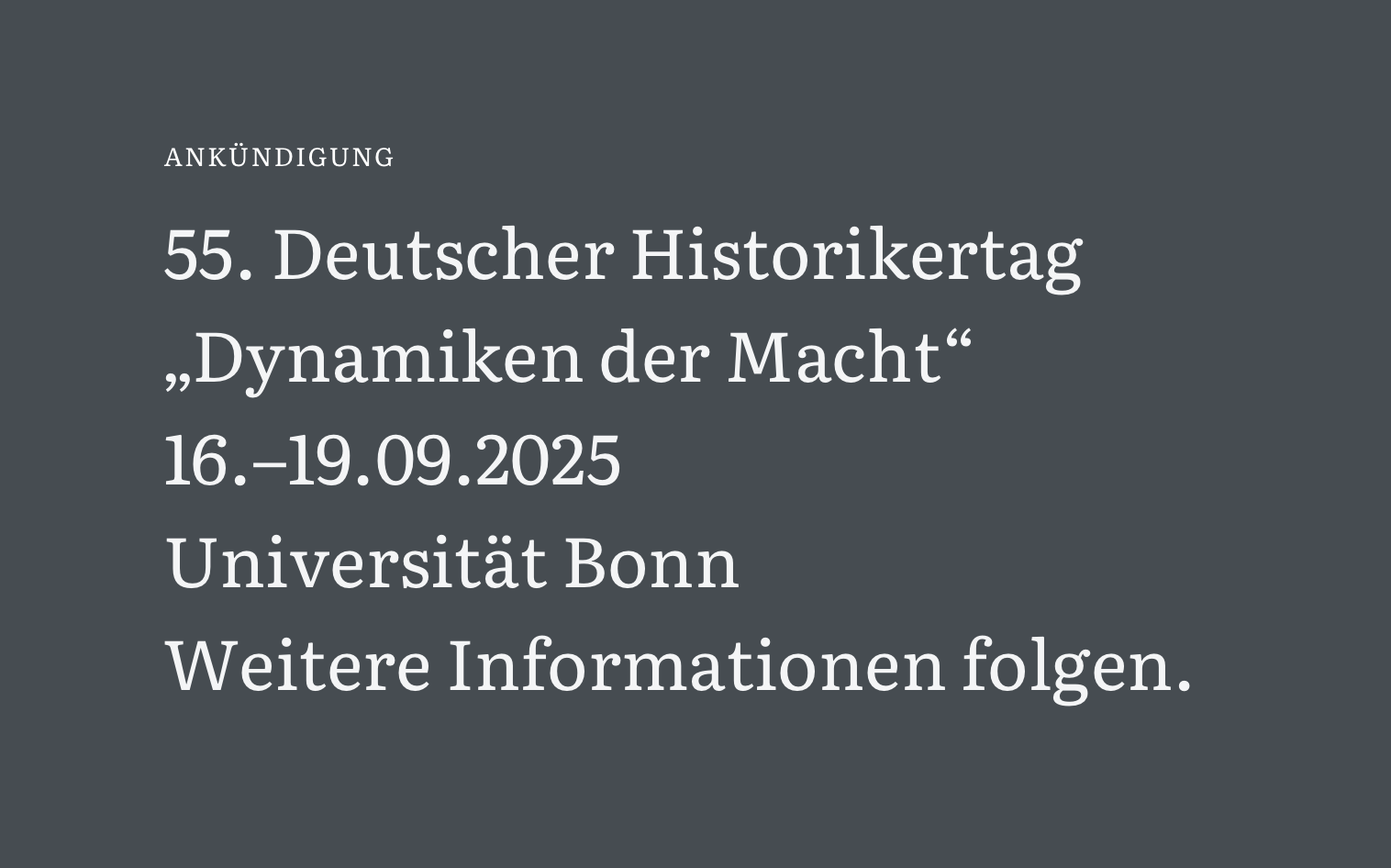Kontinent mit/ohne Grenzen. Mobilitäten und Europäisierung, 1920er-2000er Jahre
Abstract
The panel explores the links between cross-border mobility and Europeanisation. Echoing recent definitions such as those of Kiran Klaus Patel, the panel construes ‘Europeanisation’ as non-linear and often non-intended processes for which ‘Europe’ served as a reference. Research has highlighted that cross-border mobility was a driver of Europeanisation both from above and from below, resulting from national/transnational institutions and grassroots initiatives. Europeanisation has led to inclusion and exclusion: For example, Richard Jobs has argued that youth tourism-driven Europeanisation reinforced distinctions of ‘race’ but overcame those of class, gender and nationality. The panel aims to enrich such scholarship in two ways: First, it argues that mobility and the incipient Europeanisation were not only forces for integration, as often emphasized in relevant research, but also had the effect of reinforcing internal differences among Europeans from different regions, social classes, and ethnicities. Secondly, while relevant scholarship focuses on the post-1945 years, the panel covers a wider timespan from the interwar period until the 1990s, as we consider the end of the First World War as a turning point in intensifying cross-border mobility across parts of Europe.
The papers cover various forms of mobility and their impact on perceptions and practices of people who moved, the local population in places affected by the mobilities in question, and the institutions that aimed at regulating such mobilities. Engaging with recent research on intersecting mobilities, such as the works of Mimi Sheller, Maren Möhring, and Tara Zahra, the papers study case studies across and beyond Europe. Overall, the panel argues that different and intertwined forms of mobility illuminate key processes that shaped Europe in its internal relations and in its global context.
In the 1930s, narcotics experienced increasing restrictions but also media exposure. In western Europe, heroin arrived from Turkey and the Balkans. Producers, traders, and consumers moved within transnational configurations, mostly studied through the sources of the League of Nations or the USA Federal Bureau of Narcotics. This paper combines police and press sources from France, Switzerland, Turkey, and Yugoslavia to explore how traffickers and addicts were profiled in terms of ethnicity, gender, and class. It argues that the drug trade was a trans-European phenomenon which, however, reinforced civilizational boundaries, representing Europe’s South/East as corrupting for its North/West.
The paper focuses on women involved in transnational commercial sex and men recruited for the French foreign legion. The mobilities of these working-class people, both labelled as ‘white slaves’, became contentious and moralized issues between France and Germany after the two World Wars. The paper shows how border control and intense policing were supposed to prevent these illicit ‘flows’ and discusses the social realities of sex workers’ and soldiers’ mobilities, their practices, networks, and agency. Looking at regulation and experiences of these ‘deviant mobilities’ reveals the profound ambivalences of dealing with mobility along gender, class, and race within, out of, and towards Europe.
The changing modes of business travel provide a perspective on how the technical possibility of air travel shaped social processes of Europeanisation. Air travel for professional purposes served as a factor of ‘integration’ — as air travel became affordable for a broader social spectrum — and as a factor of ‘fragmentation’, as it fostered the emergence of cosmopolitan economic elites that were perceived as detached from societies. While this evolution can be observed worldwide at different times and in varying intensity, companies and businesspeople from Europe serve as a case study to analyse the patterns of these dynamics.
Remigration of Greek workers from West Germany to Greece and tourism from the former to the latter helped increase in the 1980s the number of married bicultural couples involving German women and Greek men who lived in Greece. The paper argues that the growing discussion about bicultural marriages contributed to a partial challenging of mental mappings of ‘Europe’ that circulated in Greece in the 1980s. Those mental mappings rested on forms of cultural racism. My talk, thus, shows not only the resilience of ‘race’-related perceptions in processes of Europeanisation from below, as Richard Jobs’ magisterial work (2017) has recently demonstrated, but also their fragility.
This paper centres on the struggle over tourism development on the island of Minorca, Spain. As Majorca, the largest island of the Balearic archipelago, became saturated with resorts by around 1970, foreign investors began setting their sights on Minorca. The Franco dictatorship generally courted tourism development and rarely enforced environmental regulations or building codes, but a rising generation mobilized against these developments. Clashing discourses of modernization, democracy, and ecology acquired Europeanist undertones. Across dictatorship and democracy, the judges and administrators charged with mediating these debates turned to European models.
This paper explores the interplay between migration and the idea Europe among Romanian Germans during and after the Cold War. Detailing debates among Romanian Germans over emigration from Romania to West Germany during the Cold War, this paper then places the legacy of migration at the heart of debates over Europe in the period of EU enlargement in the 1990s and 2000s. After much effort in pulling Romanian Germans westwards, Romanian German reconsidered their position the new European order after 1989 and reinvented themselves as ‘European bridge-builders’ in a Europe recentred on the place they once tried to escape: Transylvania, the Banat, Romania, east-central Europe.

